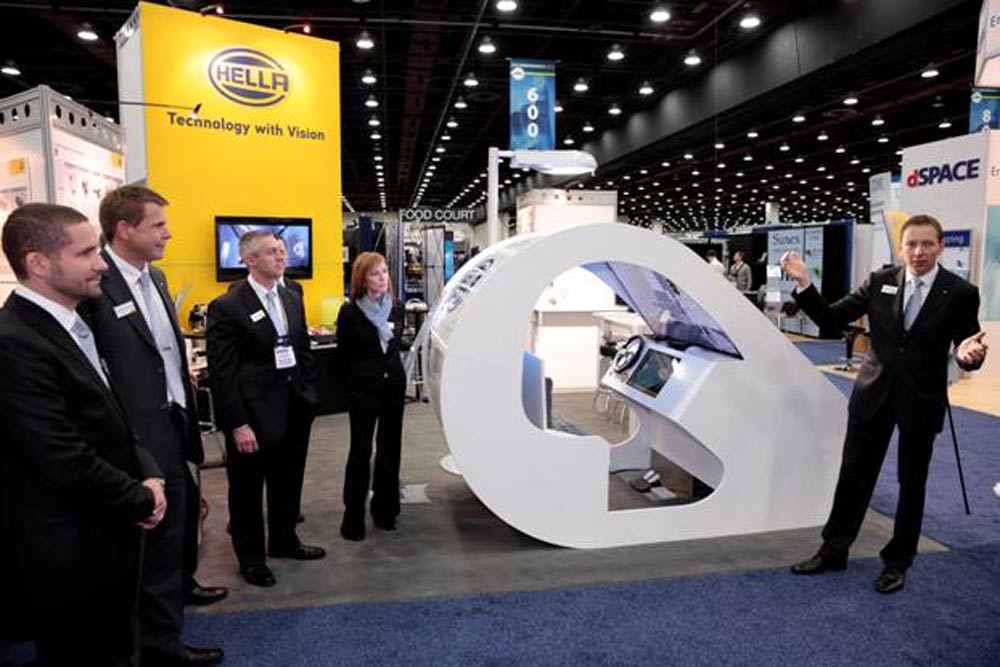Hella Bringing Stop-Start to Next LevelHella Bringing Stop-Start to Next Level
The German supplier says its upcoming system can shut down the engine at speeds up to 60 mph and deliver 10% in fuel savings.

DETROIT – Hella is testing a new stop/start system it says will automatically shut down an engine at speeds up to 60 mph (95 km/h) if it is determined vehicle torque is not needed.
The German-based supplier says the system has the potential to increase fuel economy by up to 10%, double the savings realized by traditional start/stop systems that shut down the engine at complete stops.
“Imagine a sloping rundown or when you approach a traffic light. You don’t really need the torque of the engine,” Martin Fischer, president-Hella Electronics, tells WardsAuto at the Society of Automotive Engineers Convergence conference here. “So (the system) disengages the gearbox, shuts off the engine and you save even more fuel that way.”
To ensure drivers don’t lose steering or braking, both powered by the engine, the Hella system has a backup battery to ensure if one fails the other will kick in, Fischer says, noting the twin-battery setup also can be programmed to maintain the temperature inside the cabin following engine shutdown.
Depending on the preference of the OEM customer, the backup energy storage device can be a low-powered lithium-ion battery pack or double-layer capacitors.
Porsche developed similar technology in 2009 for its Cayenne hybrid cross/utility vehicle, but it only works on full hybrids with a fullsize Li-ion battery. Hella’s system was developed for partial hybrids or vehicles powered by traditional internal-combustion engines, the supplier says.
Fischer says testing is being conducted on tracks and roadways around the world, and the system has performed as expected.
But it’s not the technology that could keep Hella’s stop/start system from being offered commercially. Rather, it’s how consumers embrace it, he says.
First-generation start/stop systems only recently have begun to find their way into mass-production vehicles. Ford’s new ’13 Fusion, for example, offers the technology, for which Hella supplied components.
“We’re determining (whether) it is even acceptable to shut down the engine at a red light, and the next level is to shut it down during coasting or driving,” he says. “It’s not so much the technical challenge that determines the introduction timing now, but much more the consumer perception.”
If stop/start becomes widely accepted, Fischer says the second generation could be offered in production form in three to five years.
Although drivers might view a system that shuts off their engine at high speeds with some skepticism, a top Hella marketer says they will adapt.
Winfried Menge, vice president-marketing for Hella Electronics, says consumers have become acclimated to new technologies introduced at an increasingly rapid pace over the past 20 years.
“Every gas (-powered) car has an electrical throttle system, and nobody knows,” he says. “So we have to explain the technology at point of sale and talk about safety. It’s more marketing than a technology task.
“The technology is completely there, now we just have to sell it.”
About the Author
You May Also Like

